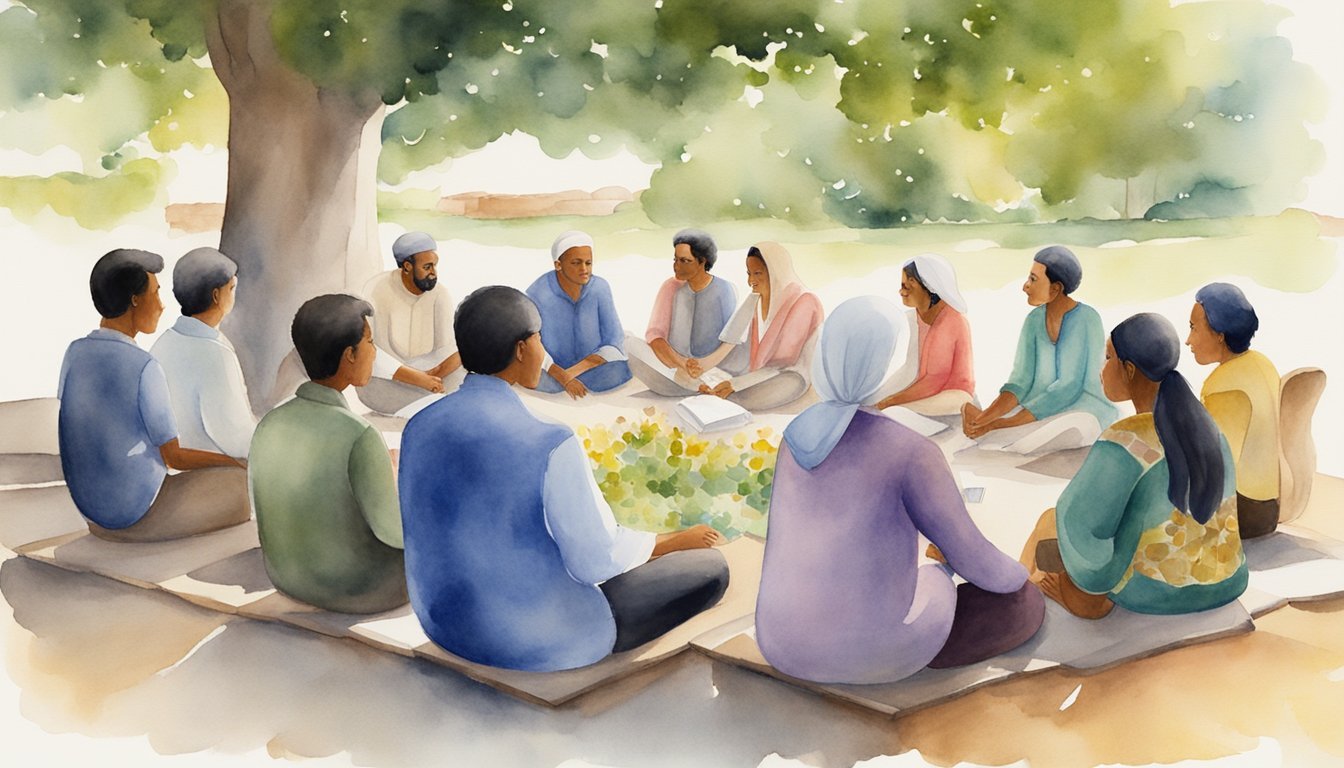Fundamentals of the Bahá’í Faith
The Bahá’í Faith is distinguished by its emphasis on unity, the central role of its founders, and a rich corpus of sacred texts.
Origins and Central Figures
The Bahá’í Faith began in the mid-19th century in Persia with two central figures: the Báb and Bahá’u’lláh. The Báb, whose title means “the Gate,” began the movement in 1844 and is considered a Messenger of God. He foretold the coming of another Messenger, Bahá’u’lláh, whose title means “the Glory of God.” Bahá’u’lláh is recognized by Bahá’ís as the latest in a line of Divine Educators.
Core Beliefs and Principles
A key belief of the Bahá’í Faith is the oneness of God, religion, and humanity. Bahá’ís accept all major world religions as part of a single, progressive process called progressive revelation, where each religion builds upon the teachings of the previous one and prepares for the next. The ultimate purpose is to promote unity among all peoples, which is essential to the advancement of civilization.
Sacred Texts and Writings
The Bahá’í writings consist of the teachings of the Báb and Bahá’u’lláh, along with interpretations by ‘Abdu’l-Bahá, the son of Bahá’u’lláh, and writings of Shoghi Effendi, the Guardian of the Bahá’í Faith. Among these texts, the Kitáb-i-Aqdas, written by Bahá’u’lláh, is central as the Most Holy Book. It includes laws, principles, and practices for individual believers and the organization of the global Bahá’í community.
Bahá’í Community and Administration

The Bahá’í Faith features a unique system of administration that eschews clergy in favor of elected bodies and appointed individuals, who together guide the spiritual and administrative affairs of the community. This system aims to embody principles of democracy, consultation, and equality.
Worship and Community Life
Community life within the Bahá’í Faith is centered around the concept of unity and the practice of collective worship. The Nineteen Day Feast is a prime example, occurring once every Bahá’í month and serving as a focal point for worship, consultation, and community bonding. Prayer, both personal and collective, plays a significant role in a Bahá’í’s life, with distinctive Houses of Worship built as symbolic structures dedicated to the unity of religions and mankind.
Global Administration and Governance
The highest governing body of the Bahá’í Faith is the Universal House of Justice, located in Haifa, Israel. This institution, elected every five years, oversees the international affairs of the Bahá’í community, ensuring that the teachings of unity and peace are upheld. In addition, National Spiritual Assemblies and Local Spiritual Assemblies direct the affairs of the Bahá’í community at their respective levels, following principles of consultation and non-partisanship.
Social Principles and Activities
The Bahá’í Faith is active in promoting social principles such as the equality of men and women, the elimination of prejudice, and universal education. Bahá’ís engage in various forms of service and community-building activities, designed to promote the welfare and unity of the human race. They labor to bridge the divides between races, cultures, and religions, aiming to contribute to an ever-advancing civilization.

